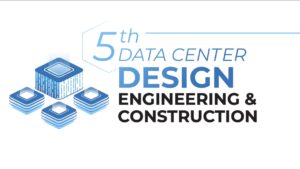The reliance on data centers is increasing every day. This has led to cybercriminals and disgruntled insiders targeting facilities. The breach of data by them in turn results in data theft, service disruptions, financial losses, and reputational damage. Furthermore, the growth of adoption of IoT, edge computing, and more are making the attack surface larger. AI in data centers can revolutionize data center security. This is by providing advanced threat detection, real-time monitoring, and automated response capabilities. This article will go more into the use of AI for facility security in data centers.
Leveraging AI in Data Centers for Advanced Threat Detection
Data center security may be enhanced by AI-powered threat detection capabilities. These can precisely identify threats and physical intrusions. Let’s dive deeper:
Identifying Cyber Threats
Today, implementing AI in data centers primarily involves detecting cyber threats. The traditional security systems find it challenging to remain effective in the ever-evolving space of cyber threats. It includes sophisticated malware, zero-day assaults, and APTs.
AI algorithms can analyze system logs, network traffic, and user behavior trends. It finds abnormalities and possible indications of compromise (IOCs). Furthermore, AI systems can detect risks that were previously undiscovered. Its ability to adjust to novel attack vectors stems from its ongoing learning from extensive databases. As a result, this makes it possible to address cybersecurity with greater thoroughness and proactivity.
AI may also be linked with current security information and event management (SIEM) systems. It improves their capabilities through reduced false positives, complicated attack pattern identification, and data correlation from many sources. So, it is one of the major ways how AI can help data security.
Detecting Physical Security Breaches
Data centers need physical protection since unauthorized access might lead to sabotage, data theft, or system disruption. AI-powered video analytics allow for real-time threat detection and surveillance. So, they can significantly improve physical security.
AI in data centers may analyze live and recorded video feeds. It spots suspicious activity, unauthorized access attempts, and possible security breaches. This is by utilizing computer vision and deep learning techniques. These devices can identify unusual behaviors like tailgating and loitering. Moreover, it can notify security staff and facilitate a prompt reaction.
Combine AI in data centers with physical security measures such as biometric authentication, access control systems, and others. It offers an extra layer of protection and guarantees that only authorized workers can access critical data locations.
AI in Data Centers: Proactive Monitoring and Incident Response
AI in data centers can improve the proactive monitoring and incident response process. It enables risk detection early on and quick fixes for security incidents. Let’s know it in depth:
Continuous Monitoring and Risk Assessment
Artificial Intelligence provides useful tools for risk assessment and ongoing monitoring in data centers. Moreover, AI for data center security can create baselines for typical operations and spot variations. These can point to possible risks or weaknesses.
This is through the examination of data from several sources, including sensor data, system logs, and network traffic. Data center managers may minimize downtime and potential effects. This is by identifying and addressing possible issues before they become serious security events.
Automated Incident Response and Remediation
Time is critical in the case of a security crisis. Artificial Intelligence can reduce the time between detection of threats and their avoidance. This is by automating incident response and cleanup operations.
AI systems can trigger predetermined reactions and actions based on the type and level of recognized danger. Furthermore, rerouting data flows, blocking malicious traffic, isolating hacked systems, and initiating incident response protocols are a few examples of these measures.
AI in data centers may also help with forensic investigation and root cause analysis. It can offer insightful information to stop such events in the future. It also bolsters the data center’s overall security posture. This makes it one of the most powerful ways how AI can help data security.
Integrating AI in Data Centers with Existing Security Frameworks
The efficacy of data center security operations may be increased by integrating AI capabilities with current security frameworks. These can also offer a more thorough and coordinated approach to threat detection and response.
Enhancing Security Information and Event Management (SIEM)
Data centers frequently employ SIEM systems. It compiles, links, and evaluates data from many sources of security. Furthermore, by integrating AI capabilities with SIEM, data center operators may significantly enhance their threat detection and response capabilities.
AI for data center security may process and analyze large volumes of data from SIEM systems. They can then use this data to spot trends, abnormalities, and possible risks. These are risks that conventional rule-based systems would have missed. So, this integration’s faster and more precise threat detection makes data loss and security breaches less likely.
Strengthening Identity and Access Management (IAM)
Data center security relies heavily on identity and access management (IAM). It makes sure that only those with permission may access sensitive systems and information. Moreover, organizations can use AI to enhance IAM. This is by implementing continuous authentication methods and improving user behavior analytics.
Using machine learning techniques, UBA creates baselines for typical user behavior. It also looks for variations that can point to unauthorized or malicious activity. As a result, this makes it possible to proactively identify compromised accounts or possible insider threats.
AI in data centers can be used with biometric identification technologies. It includes facial or speech recognition. Additionally, it reduces the chances of unauthorized access and adds another layer to the security.
Optimizing Security Operations Center (SOC) Processes
SOCs are crucial parts of the data centers. They help in monitoring, detecting, and resolving any problems related to security. However, the amount of data and alerts generated can be too much for a human analyst to handle. So, it may lead to slow reaction times and missing dangers.
AI can improve SOC processes by automating alarm processing, prioritization, and triage. Moreover, the capabilities of machine learning models allow for more precise threat detection with less work for human analysts. This is to recognize patterns and also connect events. Furthermore, SOC analysts can receive advice and direction from AI-powered decision support systems. It improves their capacity to handle security issues.
AI in Data Centers: Addressing Challenges and Considerations
Although AI for data center security has a great deal of promise to improve data center security, there are several issues and concerns. These need to be taken into account to guarantee successful adoption and long-term efficacy. So, let’s look at these challenges:
Data Quality and Availability
The availability and quality of data are critical components for AI system operation and training. Real-world scenario representation, accuracy, and diversity in the data used to train AI models are essential. This is for attaining dependable and efficient threat detection and response capabilities.
Privacy and Ethical Considerations
Concerns about privacy and ethics may arise from the use of AI in data center security. This is particularly true when handling sensitive or personal data. Additionally, operators of data centers need to put strong data governance frameworks in place. They also need to make sure that all applicable laws and industry standards are followed.
Continuous Learning and Adaptation
New attack vectors and methodologies constantly come up. So, it results in a continually changing threat environment in the cybersecurity space. AI systems in data centers need to continually learn from and adjust to changes. This maintains the efficacy of their threat detection and response capabilities.
Integration with Existing Systems and Processes
Careful integration with current systems and procedures is necessary when integrating AI into data center security operations. Organizational opposition, data silos, and compatibility problems can make it difficult to successfully adopt and deploy AI-powered security solutions.
To Sum Up
Using AI for data center security offers a big chance to improve incident response, proactive monitoring, and threat detection. Moreover, AI in data centers can offer a thorough and flexible solution for safeguarding these vital assets. This is by utilizing cutting-edge machine learning algorithms and data analytics.
But to successfully apply AI to data center security, issues with data quality, explainability, privacy, continuous learning, and system integration must be resolved. To overcome these challenges and utilize the latest technologies, data center operators need experts, technology partners, or the right guidance with them.
The Energy Efficiency for Data Centers Summit is one such event that can provide the right guidance and network. It takes place on May 16–17, 2024, in Dallas TX, USA. The industry experts, leaders, or solution providers will be providing valuable sessions, case studies, and more. There will be networking opportunities as well to make sure you stay ahead of the revolution of sustainable and secure data centers. Register today!




